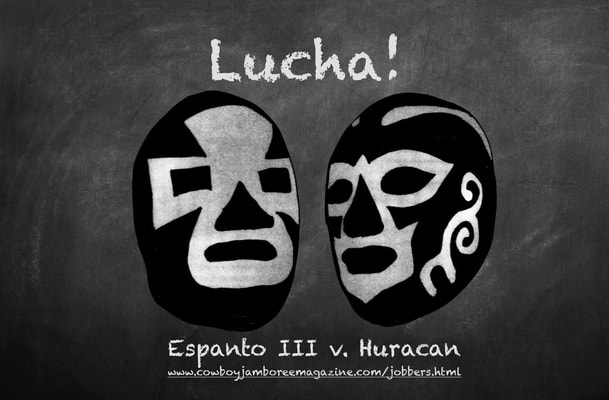Jobbers Stories
- True Dreams of Wichita by Shaun Jex
- Doink the Clown Works Birthday Parties by Michael Chin
- The Ballad of Ethel Bridges by David P. Barker
- House Show in Badger County High School Gym by Simon Nagel
- 288 Miles by David P. Barker
- Corn Dogs by Shaun Jex
- Getting Ready/Cowboy by Michael Chin
- American Dream by Robert Libbey
- Training Partner by A.A. Rubin
- Finding the von Erichs by Shaun Jex
- The Making of Big Sandy by Michael Carter
- Pot Roast from Vance Godbey's by Mark A. Nobles
- Abdullah the Butcher in Gotham by Mark A. Nobles
- PWI by Josh Olsen
